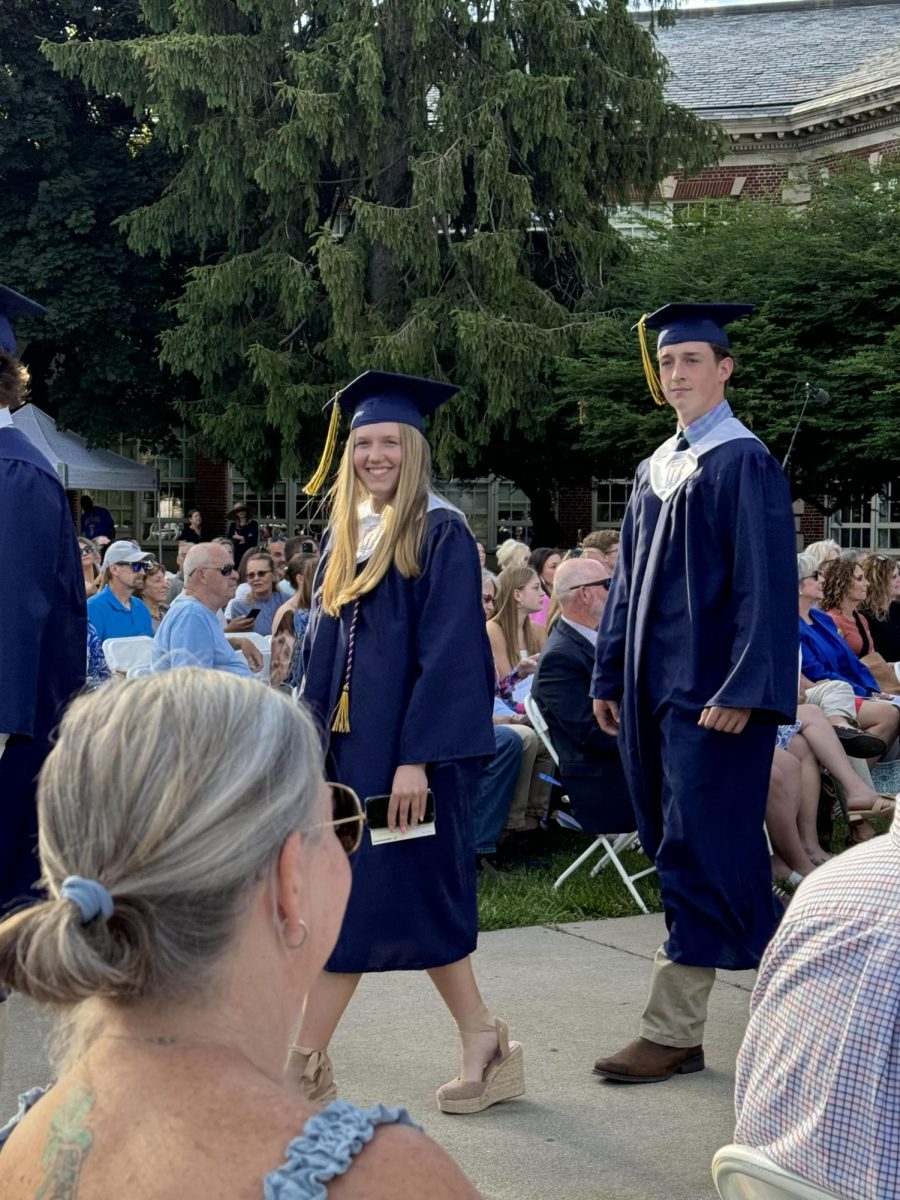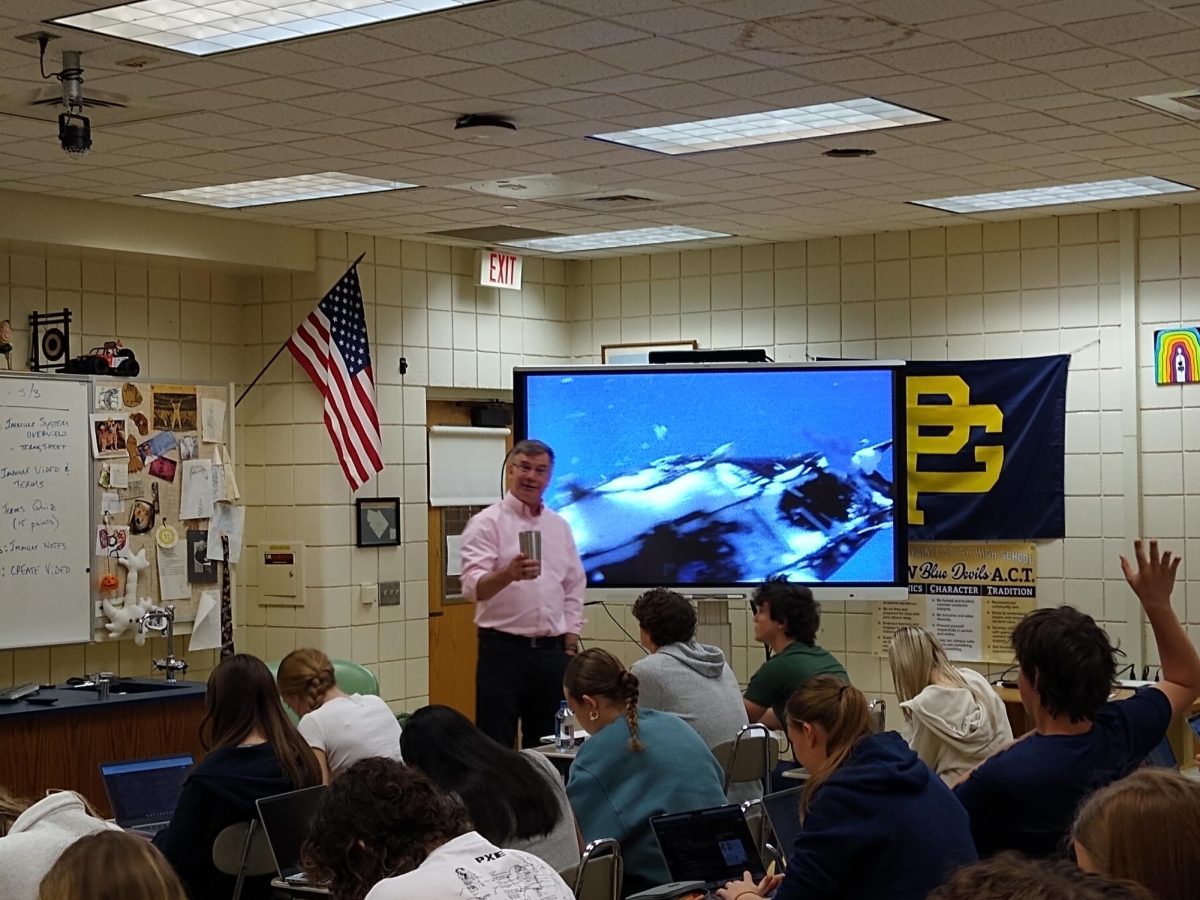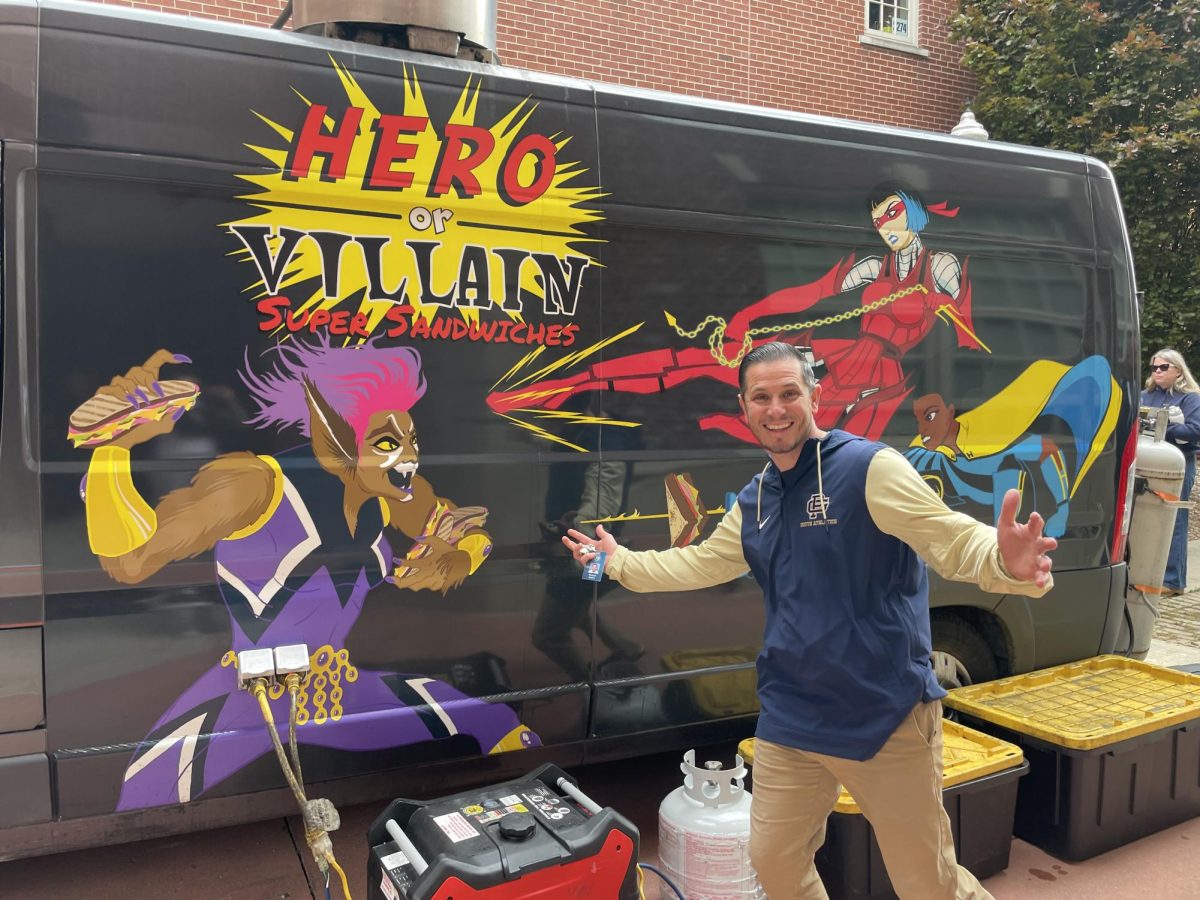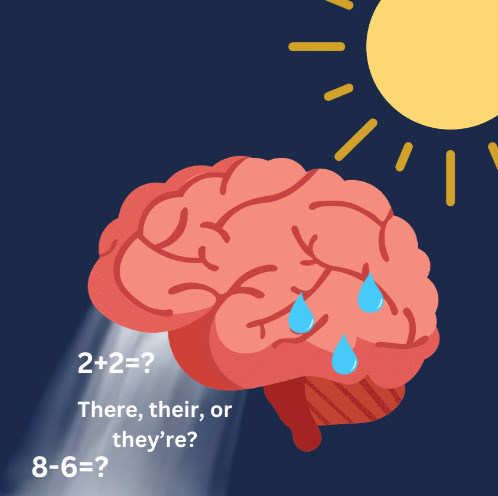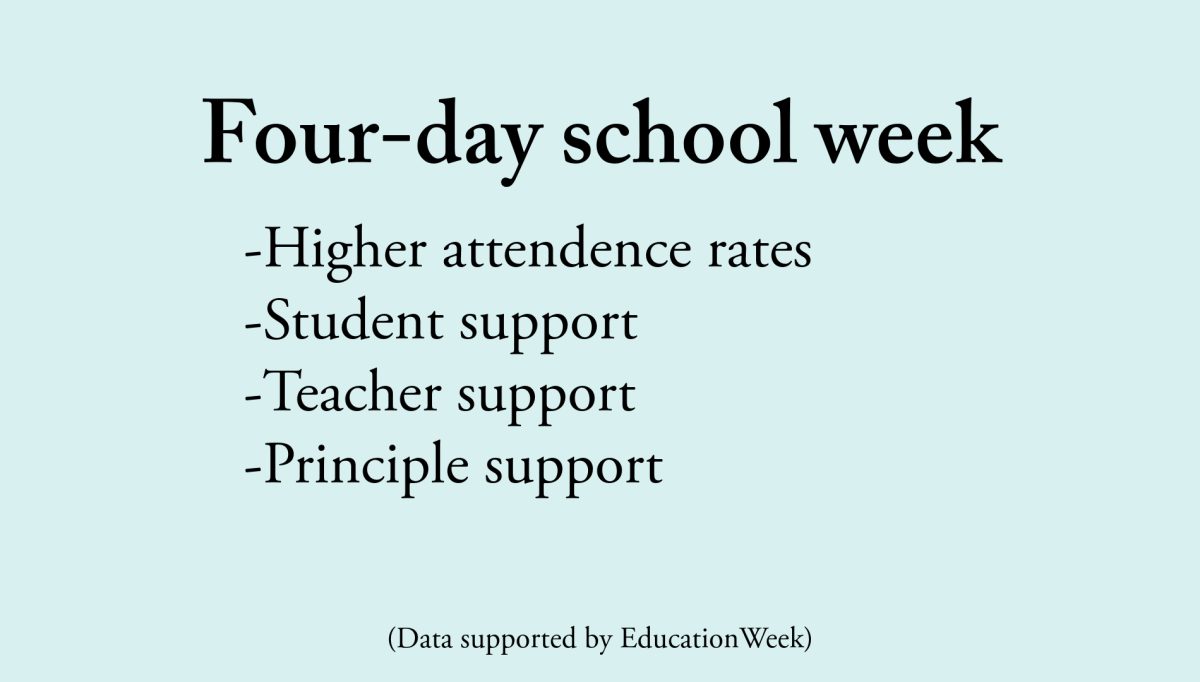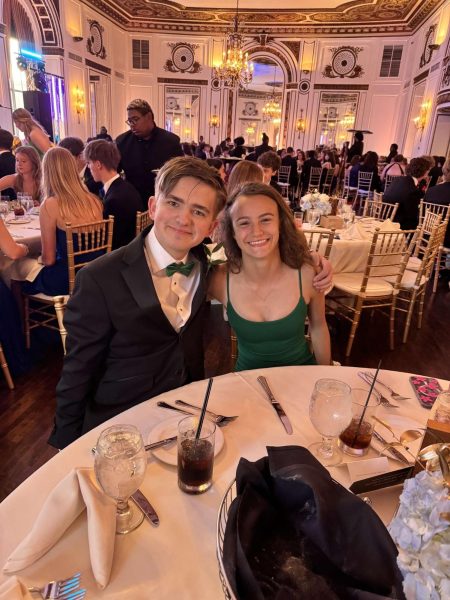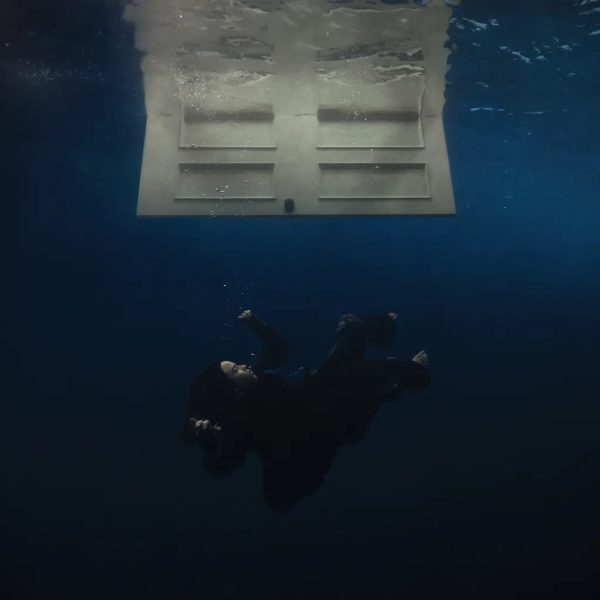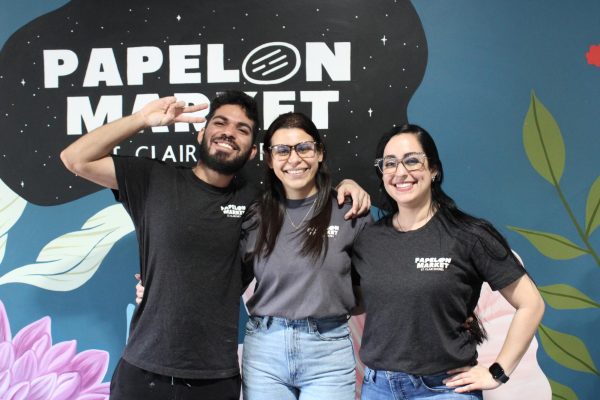The Fabelmans enchant viewers with its story and artistry
December 21, 2022

Imagine entering a movie theater to see Jurassic Park. The colorfully patterned rugs of the floor, the smell of artificial popcorn at the concessions stand and the enticingly comfortable seats all set the scene. The crowd gasps collectively as the T. Rex begins to chase the truck and your heart starts beating faster as the music crescendos. That unexplainable feeling of fear, unity and uncertainty was orchestrated by none other than Steven Spielberg.
Steven Allan Spielberg is notorious for his experience in filmmaking and artistry, directing iconic films such as Jaws, Jurassic Park, Saving Private Ryan and E.T. the Extra-Terrestrial. Now, officially released on Nov. 11, Spielberg has created a semi-autobiographical film to add to the collection of hits, The Fabelmans.
The Fabelmans loosely follows Spielberg’s childhood as he grows up with his Jewish family and develops his love for picture-making. Centered around family dynamics, losing love for a passion and pursuing dreams, the Fabelmans not only reflect Spielberg’s morals but also how far he has come as an artist in the modern world.
The Fabelmans opens with a young Sam Fabelman, played by Mateo Zoryon Francis-DeFord, being encouraged by his mother, played by Michelle Williams, and his father, played by Paul Dano, to go see his first movie. However, the movie turns out to be incredibly violent for a young kid, containing a scene in which the main character gets hit by a train while in his car.
Sam is incredibly impacted by this scene, but not in the way a typical kid would be, instead, Sam wishes to recreate the scene and film it with toys in order to become desensitized. This births Sam’s passion for film.
The audience soon watches sequential scenes of Sam creating mini in-home movies with his two sisters Anne, played by Julia Butters, and Natalie, played by Keeley Karsten. However, these dreamy, joyful scenes take on a sadder tone as the family is told that they would be moving from New Jersey to Arizona for a job opportunity. Not only is his wife in bitter remorse, questioning why her husband would want to leave Benny, played by Seth Rogan, and his best friend, but soon ups and leaves with the children and drives toward a tornado raging throughout the town.
This blue and angry scene transitions into the family moving to dusty Arizona, where the Fabelmans find themselves happy not only because of the community, but also because Benny moved with them. Schooling, Boy Scouts and Sam’s mother’s enchanting piano all bring joy to the family and a now teenage Sam, played by Gabriel LaBelle. Sam begins to become a small-town star as his films, which have been growing in technique and meaning, have live-audience showings for his troop.
This inspires him to continue film making, filming and even curating a family camping-trip montage to comfort his mother after his grandmother’s death. However, he discovers his mother cheating on his father with Benny throughout the film reels. He cuts them out of the final product, but this causes him to lose respect in his mother and quit movie-making altogether.
It isn’t until the Fabelmans (sans Benny) have moved to California, Sam’s mother impulse-bought a monkey, Sam began getting bullied in high school, and had gotten a girlfriend that he had decided to reconnect with his passion by filming the ‘Senior Skip-Day,’ in which the senior class would go to the beach.

Although this re-incited his love for filmmaking, he lost his girlfriend (who broke up with him after he asked to marry her) and his mother (she divorced her father and moved back to Arizona to be with Benny). This would not phase him as he continued to write letters to big corporations to hire him as an assistant. It isn’t until he receives the opportunity to work with CBS that he gets his ‘big break’ and decides to drop college.
The movie concludes with Sam getting to speak with his idol director, John Ford (played by David Lynch), the director of the movie in which the train crash occurs, and he gives him the advice to never have his horizon line dead center in the screen before being sent out of his office. As the curtain closes the audience sees a jubilant Sam skipping down the screen and the camera being haphazardly adjusted to put the horizon line below the center.
Despite there being limited action throughout the majority of this film, it never feels incredibly long or boring. The acting and plot carry the viewer brilliantly throughout the film as they ride the rollercoaster of grief, passion, adolescence and love just as the Fabelmans experience it. It keeps you anticipating what drama is yet to come since every scene has its own defining moments, whether heart-wrenching or overjoying.
For a cast mostly consisting of younger actors, the acting is phenomenal. I personally applaud LaBelle’s acting throughout the movie as he showcases the subtleties of emotion and outwardness of adolescent defiance and discovery. Supporting roles such as those by Butters and Sam Rechner (one of Sam’s bullies) are an incredible contrast to Sam’s morals and his personality, helping to shape Sam’s development as a person while still being their own characters.
The applause cannot only go to the younger cast, as the more experienced actors such as Seth Rogan, Paul Dano, and Michelle Williams also deserve praise for powerfully representing the dynamic between parents and children. Their performance encapsulates the delicacies of human emotion and relationships, defining how it’s a fine line to tread when raising kids and still maintaining your personal life.

Praise has to also be given to Spielberg’s attention to detail and work with cinematography. Since the movie is a nod to Spielberg’s childhood, the intricate lighting, emphasizing emotion through color, and overall beautiful scenes encapsulate Spielberg’s growing artistic eye as a child and an adult.
Despite its artistry, there are some characters there to only contrast Sam’s character, rather than being their own stand-alone person, such as Sam’s girlfriend Monica, played by Chloe East. Chloe East does an excellent job portraying this uncomfortable character who is meant to help Sam rekindle his passion; however, although she uplifts him, thirty minutes later she breaks up with him.
The Fabelmans is a beautiful portrayal of family aches and pains as they journey together through life as they each follow their passions: Sam pursuing film, the father pursuing his job, and the mother pursuing love. Support fosters a stable sense of self and comforts a person when times are tough, and no one can supply that better than family. As an artist, this movie deeply touched my soul and helped to assure me that ultimately, passion is what connects us as human beings.

